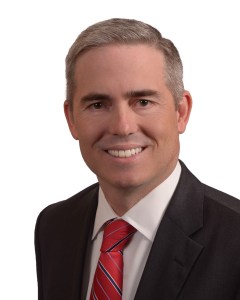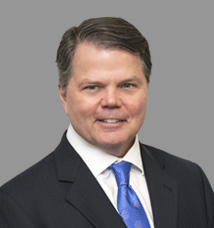Building an Effective Commercial Property Management Team
Experts share best practices for developing top-notch professionals.

Image by mohamed_hasan via Pixabay
For all the diversity of commercial real estate asset categories, one thing they have in common is a need for effective, responsive and productive property management teams. Building a property management team that provides the best possible service, in addition to maximizing the owner’s bottom line, is key to success. As a new generation enters the workforce during economic uncertainty, a strategic approach to property management team building is a must.
Emphasize the intangibles

Bob Assoian. Image courtesy of NAI Hiffman
The most important part of building a team that can fulfill the many demands of property management is that it is a people-centric service. That is distinct from the revenue-related and maintenance responsibilities that are often more commonly associated with property management. “Collecting the rent, mowing the lawn—that’s the commodity part of the business,” observed Bob Assoian, executive vice president & executive managing director at Hiffman National. “I put on asset management. Let’s assist the owner in helping their investment be successful…our clients see us as a support to them, not just doing the minutiae in this business.”
Hiffman National’s training for new property managers reflects this idea, regardless of the team member’s professional background. The approach focuses primarily on the type of person being trained, and where their inherent skills find the best use. “Few people go to college to study property management,” Assoian noted. “We could take liberal arts majors, take them through our training program, turn them into successful (managers) and give them a great career. We think we can teach it if the right personality and drive is in that individual.”

Brian Pearce. Image courtesy of Unico Properties
Brian Pearce, executive vice president of real estate services at Unico Properties, takes a similar approach to team building. In his view, managers with good social skills and judgement are more valuable than those who simply accomplish day-to-day tasks.
“This really is a customer service business as much as it is physically running a building,” he said. “The technical aspects can easily be taught. It’s the softer skills that someone has to have innately that are harder to teach.” This principle applies to Unico’s candidate selection and hiring process, where people with such “soft skills,” say, from the hospitality industry, are preferred over those with “really strong technical skills, but not great communication or social skills,” according to Pearce. This stems from Pearce’s view of property management and how teams best work together. “One of our company values is, together, we’ll figure it out; it’s recognizing that there’s not one person out there who knows everything.”
Foundational strengths
Alongside the intangible traits that make for a good property management team, there are certain foundational considerations and specialties that go into nearly every step of the building process. At the core is an understanding of the responsibilities that go into managing a given property effectively. For John Viggers, senior vice president of Cushman & Wakefield Iowa Commercial Advisors and member of The Counselors of Real Estate, that idea goes into nearly every step of forming the teams that he builds. “You need to fully understand the portfolio, who you are hiring for and what you are doing,” he pointed out. “Are the properties owned by private investors, partnerships, third-party members, family members or institutions?”

John Viggers. Image courtesy of Cushman & Wakefield
Because the property managers work as teams, a degree of specialization and nuanced knowledge is necessary. As Viggers described it, “An old sentiment is that property managers need to be jacks of all trades, [but] the one thing I will tell you is that the person that’s perfect at everything doesn’t really exist.”
On the revenue-tracking and databasing side, Viggers sees financial literacy as a must. “This is a financially-driven business; we need people with strong accounting skills and a working knowledge of finance.” Another specialty is legal knowledge and a strong understanding of legal terminology. And managers should have a degree of technological competence to enhance tenant and client experience. “As advances in technology proliferate, we all need to have an understanding of all the various tools that allow us to do more and more,” Viggers said.
READ ALSO: What’s Driving Industrial Property Management Today
On the broader side, Viggers sees the need to combine being detail-oriented and awareness of ownership’s long-term goals. “You need to understand the nuances of what’s going on, to understand the legal and financial contracts, but make sure that you have a clear picture of your clients’ goals in the long run.” Governing all of the above is Viggers’ main priority—a respect for the complexity of a given property that in turn transfers into the minutiae of management.
Still, Viggers understands that this takes different forms, just as the personalities within a management team vary widely. “I’ve seen exceptional asset managers running $100 million deals and yet they cannot handle confrontation,” he noted.
Ultimately, it is the recognition of this idea that leads to the greatest success, no matter what a manager may specialize in. As Viggers observed: “You need to find the best people and put them into the best roles to create the perfect teams.”







You must be logged in to post a comment.